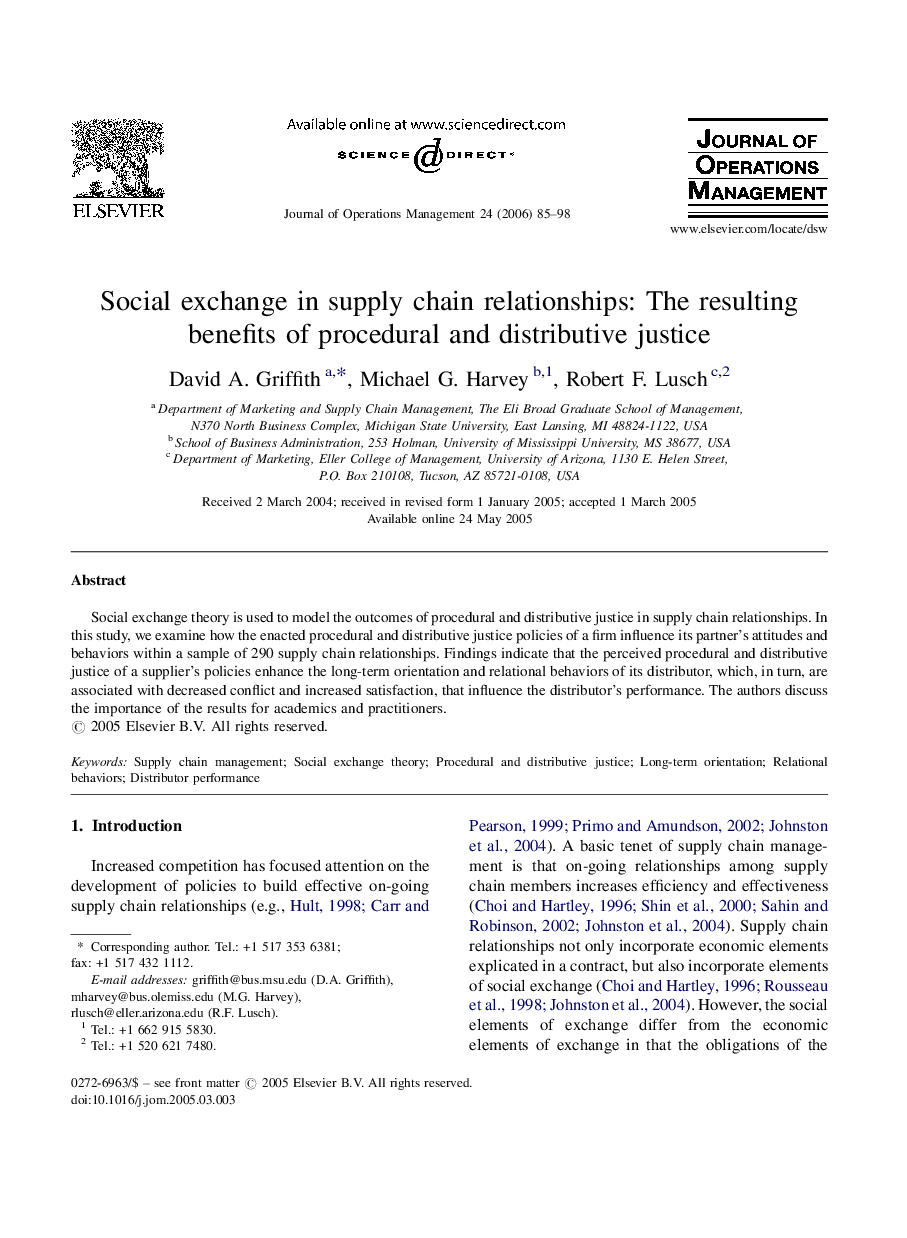| Article ID | Journal | Published Year | Pages | File Type |
|---|---|---|---|---|
| 1032223 | Journal of Operations Management | 2006 | 14 Pages |
Abstract
Social exchange theory is used to model the outcomes of procedural and distributive justice in supply chain relationships. In this study, we examine how the enacted procedural and distributive justice policies of a firm influence its partner's attitudes and behaviors within a sample of 290 supply chain relationships. Findings indicate that the perceived procedural and distributive justice of a supplier's policies enhance the long-term orientation and relational behaviors of its distributor, which, in turn, are associated with decreased conflict and increased satisfaction, that influence the distributor's performance. The authors discuss the importance of the results for academics and practitioners.
Related Topics
Physical Sciences and Engineering
Engineering
Industrial and Manufacturing Engineering
Authors
David A. Griffith, Michael G. Harvey, Robert F. Lusch,
